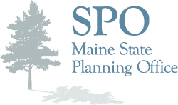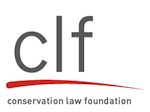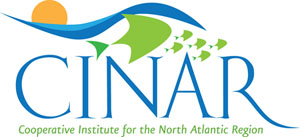New ESIP journal entry
There is a new journal entry available on the EcoSystem Indicator Partnership (ESIP) webpage (http://www.gulfofmaine.org/esip/).
The current entry focuses on an interesting contamination forecasting system used in the Annapolis Basin of Nova Scotia for both wild and aquaculture clam harvests after heavy rain events, reported Christine Tilburg, ESIP program manager “We’ve discussed this topic in many ESIP conference calls including for our Climate Change, Aquaculture, and Contaminants Subcommittees. Be sure to check it out.”
Updates on regional ocean planning
The Northeast Regional Planning Body (RPB) announced a couple of updates since its last meeting in April in Narragansett, Rhode Island.
RPB held a series of public meetings throughout New England in May and June to discuss draft goals and actions for regional ocean planning. Please see the website at http://northeastoceancouncil.org/regional-planning-body/meetings for a summary of these comments (if clicking the link does not work, please copy and paste the URL into your browser). Also available on the same site is a PDF file of written comments received.
The next formal RPB meeting is likely to be held in November. RPB will contact interested parties once they determine the exact date, venue, and agenda and as we develop draft materials. This next meeting is likely to focus on specific objectives and a draft work plan for regional ocean planning, building on the discussions to date.
Betsy Nicholson, Northeast Regional Planning Body Federal Co-lead
Grover Fugate, Northeast Regional Planning Body State Co-lead
Richard Getchell, Northeast Regional Planning Body Tribal Co-lead
40th anniversary of Maine puffin restoration
This summer marks the 40th anniversary of Project Puffin, a seabird restoration project that was the first of its kind in the world and has brought about 1,000 puffins back to Maine.
Steve Kress was an instructor in the 1970s at Audubon’s Hog Island Camp when he learned that puffins used to live on Eastern Egg Rock, an island 8 miles away, but had been killed off by market hunters. He decided to try an experiment. He moved six puffin chicks from Newfoundland to artificial sod burrows he’d prepared on Eastern Egg Rock and fed them a diet of vitamin-laced fish.
He was hoping that, after they hatched and spent a couple of years at sea, they would return to the same island to breed, but they didn’t come back. So he decided to try again and again, and then he also put up puffin decoys, thinking that this would help signal the returning puffins. It worked–he had put out three decoys to start, then noticed there were four and one of them was walking!
Returning puffins paired, nested in rock crevices, and before long were seen carrying beaks full of fish back their burrows to feed their hatching chicks. The techniques Steve and his crew developed have now been used to restore colonies of 49 different bird species in 14 countries.
If you’d like to learn how an adult puffin (about 10 inches tall) can carry 60 or more fish in its beak all at once, or how chicks were transported in “puffin suitcases,” you’ll enjoy Project Puffin: How We Brought Puffins Back to Egg Rock, by Stephen W. Kress as told to Pete Salmansohn. Tilbury published this award-wining Audubon Society book in 1997 and it’s still going strong–just like the puffins. Steve and Pete also teamed up to write a teacher’s guide, Giving Back to the Earth, which has a lot of great classroom suggestions, including the classic blubber mitts demonstration.
2014 From the Bow Seat contest focuses on plastics in the ocean
The recent edition of the newsletter From the Bow Seat: Dive In! announces changes to the annual contest. This year’s contest allows entries from individuals and groups and contains categories for art, essays, and advocacy. See the website for a full description of the new categories and many new prizes for students, teachers and schools.
This year’s theme is plastic pollution in the ocean.
“We hope these changes make it easier for teachers to integrate ocean science into their curriculum to meet next generation science standards,” said Linda Cabot of From the Bow Seat, a non-profit organization with a national mission to increase ocean awareness in teens and help teachers inspire the next generation of ocean caretakers.
http://fromthebowseat.org/details.php
Print


















